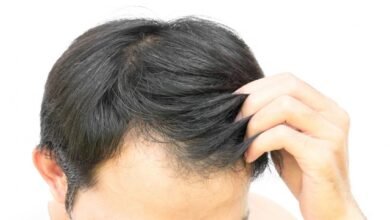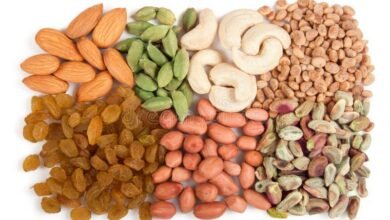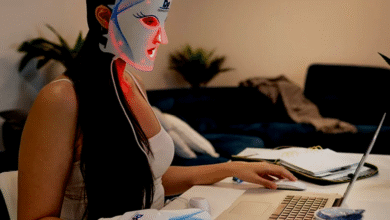Holistic Approaches: 13 Natural Remedies for Anxiety Relief

There isn’t a single kind of anxiety treatment that works for everyone, regardless of whether you experience anxiety very sometimes or have a professionally diagnosed anxiety condition. Many times, therapy involves the use of anti-anxiety drugs, counselling, or both if the combination is helpful.
Natural Remedies for Anxiety Relief
Yet, there are natural anxiety cures that may help reduce certain symptoms in addition to counselling and medicine.These treatments include anything from vitamins to calming methods like meditation. Continue reading to discover further natural anxiety alleviation methods.
What Is Anxiety?
In general, fear or uncertainty are referred to be states of anxiety. While occasional worry is natural, the emergence of an anxiety disorder indicates that the anxiety has started to interfere with a person’s ability to go about their everyday lives.
Read More : From Weight Loss to Immunity: 11 Remarkable Health Benefits of Grapefruit
Approximately 31% of persons will have anxiety problems at some point in their lives.Furthermore, not every anxiety condition is the same. They may include panic disorder, post-traumatic stress disorder (PTSD), social anxiety, and generalized anxiety disorder (GAD).
How Can I Treat Anxiety?
Talk therapy, medication, or a combination of the two are the traditional therapies for anxiety.On the other hand, specialists have been investigating complementary therapies for anxiety. Scholars have been examining the potential of natural therapies to alleviate symptoms of anxiety, such as tension, concern, and fast pulse.
Additionally, before attempting any treatments that include alternative therapies, such as nutritional supplements, consult your healthcare physician. The effects of dietary supplements differ from person to person and are very loosely regulated by the FDA.
Exercise
Physical activity is good for your health in general, mental health included. Regular exercise may have the advantage of reducing anxiety. Research indicates that anxiety may be temporarily decreased even after only one exercise session, despite the recommendation that individuals undertake 150 minutes of moderate-intensity exercise each week.
Exercise on a regular basis may also help reduce long-term anxiety symptoms.Furthermore, it is thought that mindful movement techniques like yoga provide anti-anxiety benefits.
Chamomile
According to research, using chamomile on a daily basis may help lessen the symptoms of moderate-to-severe GAD. GAD sufferers may worry over little matters to the point that it becomes a hindrance to their day-to-day activities. However, after taking three 500mg capsules of chamomile extract daily for many months, participants in one research reported an improvement in their GAD.
The study’s high-dose oral chamomile extract was administered over an extended period of time without seeming to raise any safety issues.Any amount used in tea, as well as any short-term oral supplementation, is generally thought to be safe, however more study may be required to determine the precise amount that is deemed safe.
Although unpleasant side effects like nausea and vertigo are uncommon, chamomile may interact with treatments that thin the blood, like warfarin, or that stop organ transplant rejection, like cyclosporine. Additionally, for those who are allergic to pollens such as ragweed, chamomile may cause an allergic response.
Acupuncture
The method of stimulating certain body spots via acupuncture typically involves the insertion of tiny needles into the skin. Researchers are investigating whether additional diseases, such as anxiety, the practice may help.
A comprehensive analysis of twenty trials shown that acupuncture helps lessen anxiety symptoms in GAD sufferers. This is particularly true during the first six weeks of therapy. Acupuncture has the potential to act more quickly during that period than other therapies, such anxiety medications.
Acupuncture has been shown safe by research. Seeing a qualified, experienced practitioner with clean needles is essential for safety. Serious negative effects might occur if acupuncture is not done appropriately or if filthy needles are used.
Lavender
Studies have shown that eating or smelling lavender reduces remedies for anxiety symptoms, particularly before and after chemotherapy and surgery.Lavender may not, however, always be your best bet.
Constipation and headaches are possible negative effects of consuming lavender in tea or extract form. It may also make you feel more sleepy if you take it with other sedative drugs.
Aromatherapy
Aromatherapy using essential oils may be a safe and effective natural method of reducing anxiety. Aromatherapy is the practice of inhaling a specific oil, usually derived from plants, and filling a place with its aroma. According to one study, essential oils generally assisted in lowering anxiety. Citrus essential oil, on the other hand, proved to be quite beneficial for lowering anxiety.
Omega-3 Fatty Acids
Omega-3 fatty acids are essential for the development of brain cells and support other fundamental processes. They may be found in seafood, shellfish, and fish oil supplements.It’s possible that the fatty acids will also help with anxiousness.
Some research indicates that omega-3 supplementation may help greatly lessen and avoid anxiety symptoms, despite the inconsistent results of trials.This is particularly true for those who have received a specific disorder diagnosis.
Vitamin B
It has long been known that there is a connection between anxiety symptoms and vitamin B12 levels. Studies have shown that low vitamin B12 levels are frequent in individuals with anxiety. It is thought that taking vitamin B12 supplements might lessen or possibly prevent anxiety symptoms.
Additionally, vitamin B6 may reduce anxiety. It has been shown that high-dose vitamin supplementation lowers self-reported anxiety.Some studies have also shown that taking vitamin B6 every day can alleviate a variety of premenstrual syndrome (PMS) symptoms, including remedies for anxiety connected to PMS. However, more thorough study is required to make this claim with certainty.
Although B vitamins are typically safe to use, they may conflict with some drugs.25 Before using, confirm with a medical professional.
Meditation
Among the various methods of relaxation that emphasize conscious breathing and the mind-body connection is meditation. In addition to clinical anxiety treatment strategies, it is often advised.
Studies have shown that meditation may assist those with documented anxiety disorders experience less anxiety symptoms by inducing a profound level of relaxation.Try your hand at meditation; as long as you’re in a secure space where you can shut your eyes and relax, there’s really no danger involved.
Journaling
One research indicated that persons with heightened anxiety symptoms and a variety of medical problems had decreased anxiety after one month of “positive affect journaling,” or writing down happy experiences or emotions. Before professionals generally advocate journaling, further study is probably required to determine how various kinds of writing may assist with anxiety.
Melatonin
In addition to being produced naturally by the body to aid in sleep, melatonin is also a supplement that may assist with anxiety. Melatonin has been shown in studies to assist in reducing anxiety symptoms in patients having surgery.To find out how well it works for anxiety unrelated to surgical procedures, additional study is necessary.
L-theanine
Green tea contains the amino acid L-theanine, which is also sold as a supplement. A review of prior studies found that individuals experiencing stressful events had lower levels of anxiety when they took 200–400 mg of L-theanine supplements daily. It’s unclear, however, how drinking tea containing L-theanine might affect its efficacy.
Magnesium
The mineral magnesium, which may be found in foods like milk, leafy greens, and whole grains, is involved in brain function and may have an impact on anxiety.An early examination of the literature revealed preliminary evidence that supplementing with magnesium may help lessen symptoms of moderate anxiety, generalized anxiety, and PMS symptoms associated with anxiety.
Further research is necessary to fully understand the potential effects of magnesium on anxiety symptoms in general.Furthermore, additional investigation is required to determine the optimal form of magnesium for the treatment of anxiety. Magnesium supplements include magnesium lactate, magnesium oxide, and magnesium glycinate.
Lemon Balm
A member of the mint family, lemon balm has long been associated with soothing effects. Despite the paucity of study at this time, some data suggests that it has a favourable effect on mood remedies for anxiety.For instance, two different studies discovered that drinking beverages flavoured with lemon balm improved patients’ ability to manage their remedies for anxiety while they were recuperating from severe burns and heart surgery.
When to Contact a Healthcare Provider
It’s time to see a doctor if your anxiety symptoms are interfering with your daily activities, functioning, and social connections. They may provide assistance on treatment alternatives, such as seeing a mental health expert, and assist in identifying the underlying cause of your worry.
Read More : Healthy Chinese Foods to Eat When You Have Diabetes
Seeing a doctor is also a good idea if the adverse effects of your anxiety therapy are intolerable or if the treatment is no longer working for you. Consult a healthcare professional before quitting any drug.
Conclusion
Anxiety symptoms may be reduced by using natural treatments like chamomile, lavender, omega-3 fatty acids, L-theanine, and magnesium supplements, as well as techniques like acupuncture, meditation, frequent exercise, and journaling. To find out which natural anxiety reduction techniques are best for you, see a healthcare professional.











